Child Farmer Dreams of School
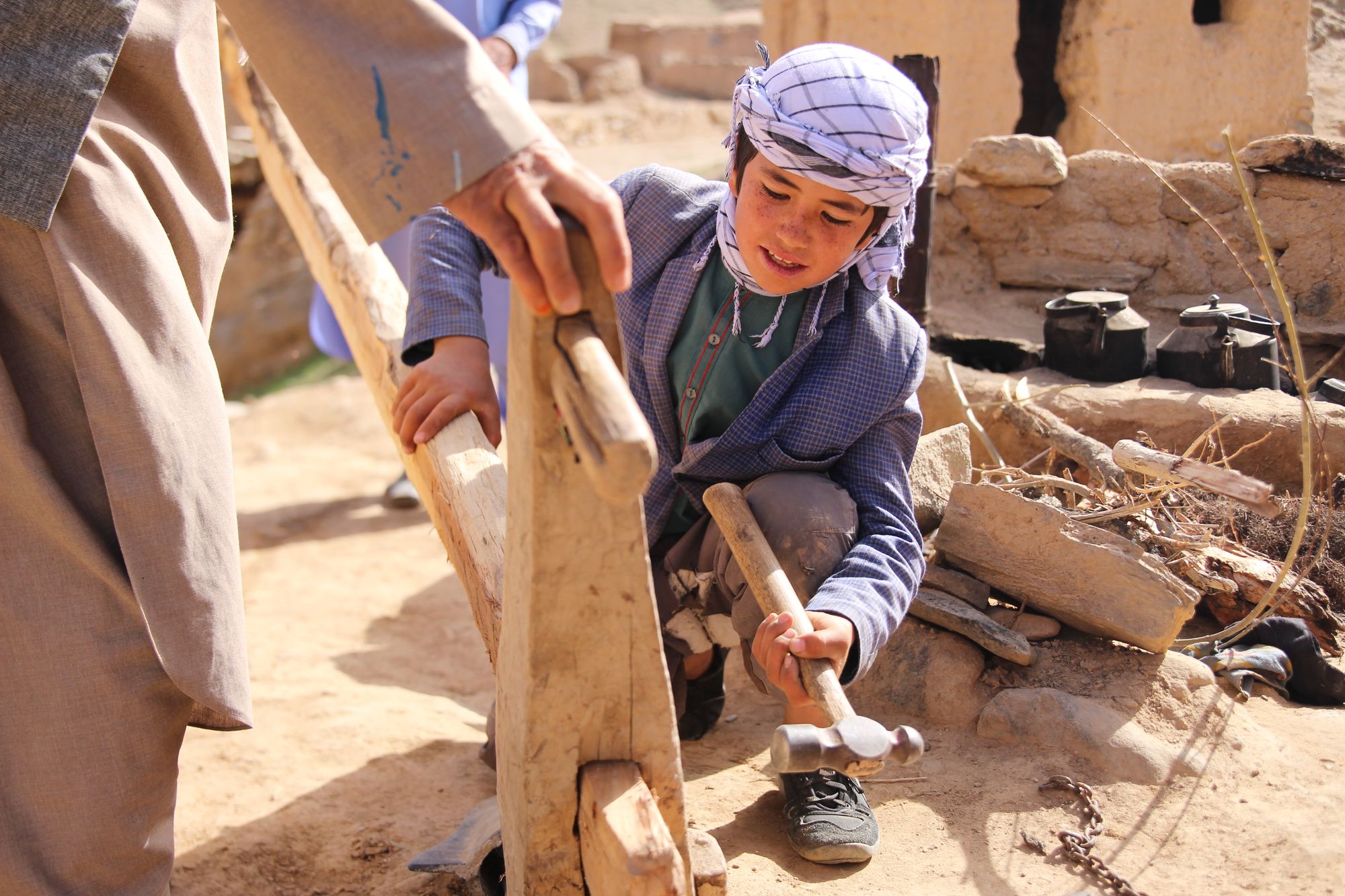
Written by Sabawoon Ahmadi
ZARTALAY, GHOR— Muhammad Asif is a 12 year-old child farmer from Zartalay, a village located 45 kilometers south of Firozkoh, the capital of Afghanistan’s western Ghor province. Since he was six, Muhammad has been spent each year working alongside his father, Hamed. The boy spends the wintertime collecting firewood from the nearby mountains to warm their family home.
In today’s One Day in Afghanistan episode, Sabawoon Ahmadi spends a day with Asif and his father while they are hard at work plowing their field.
On a bright morning, I set out for Zartalay from Firozkoh in a white passenger van. After about an hour and a half, as I near my destination, I find people busy with their daily routine. Similarly, the children of this area, mostly dressed in blue, leisurely make their way through the alleyways and backstreets toward the school.
Although it is time for children to be heading to school, I find that Muhammad Asif is not getting ready for school; instead, he is preparing to tend to the farmlands. In fact, none of Asif’s 9 family members have attended school. The time is 7:45 AM, and there's a slight deviation from his usual routine as he begins his work a bit later today. With the cultivation phase concluded, today's agenda revolves around plowing the irrigated farmlands.
Prior to commencing their work, Muhammad Asif tends to the cows, in the morning he must feed them hay. Following this, he helps Hamed organize the necessary farming equipment. Guiding their cows out of the barn, they secure a wooden yoke around the neck of each animal, ensuring they stay together during their tasks. Walking in unison, the cows proceed towards the fields as directed.
At approximately 8:10 AM, we reach the fields that Hamed leased for farming, hoping to feed his family with the resulting harvest. They fasten the cows together and affix the wooden yoke to the harness, commencing plowing their field. There are instances when the father takes charge, while at other times, Asif assumes the responsibility, wielding the guiding stick to direct the cows in a rhythmic motion, readying the land for cultivation.
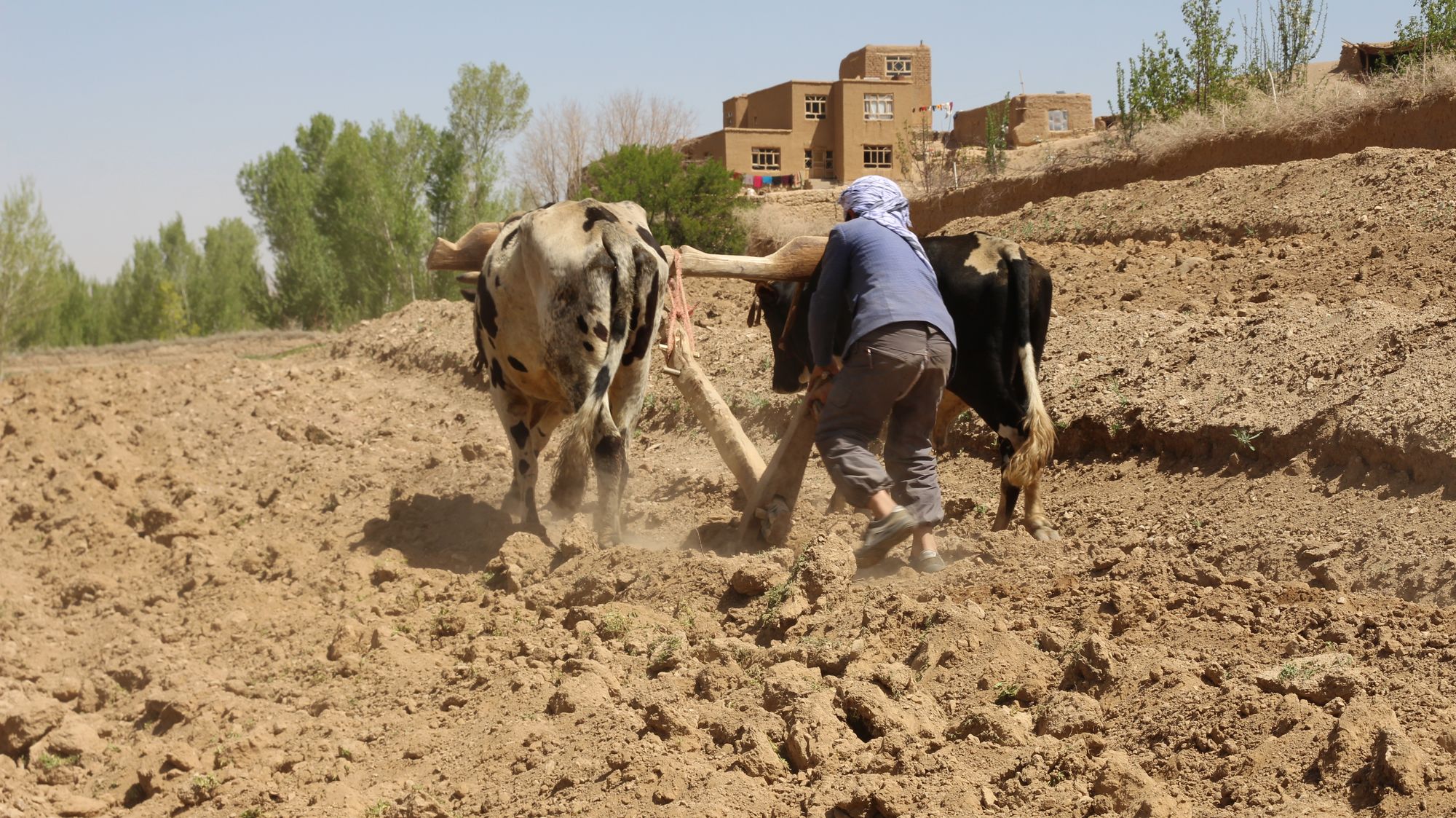
With a stick in hand to guide the cows, Muhammad Asif explains that they plow the land daily to prepare it for cultivation, "This year, with my father, we planted 50 mann wheat (200 kilograms), 20 mann barley (80 kilograms), and 10 mann (40 kilograms) lentils. We plan to grow potatoes on this land as well."
The field they are currently tilling was already plowed on a prior occasion. According to Hamed, plowing a second time further loosens the soil, improving its productivity.
Asif says that leading up to the harvest season, their days are occupied with various tasks. These include gathering firewood from both the mountains and nearby villages, overseeing the irrigation of vegetables, and managing the upkeep of the potato fields.
The family allocates two months out of the year to plowing and cultivating. The remainder of the year is dedicated to tending their farms and addressing other routine chores.
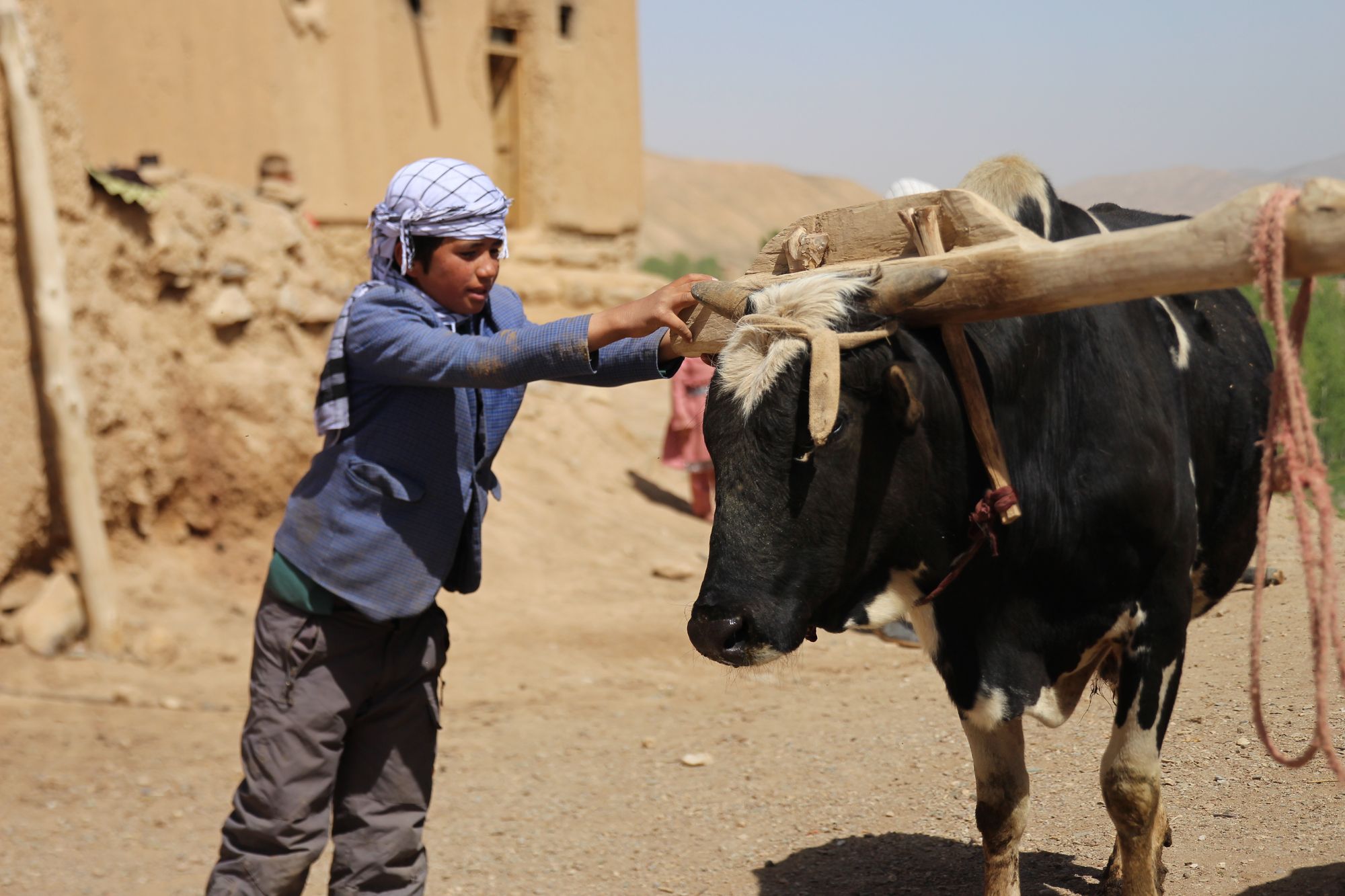
Asif thinks this year is great for farming because of lots of rain. He says, "A good year shows itself in spring." He hopes their crops will grow better and they won't have money problems. Although there is a drought in much of Afghanistan, residents in Ghor say that it rained and snowed more than in previous years.
While he isn't particularly passionate about farming, Asif is driven to take on the responsibility of supporting his family. He walks side by side with his father, sharing the workload and carrying more than his share, as Hamed can't manage all the tasks alone.
It's now noon. Both Asif and Hamed are feeling tired and low on energy. They find a spot under a tree's shade to have their lunch, which comprises dry bread, yogurt, and tea. They take turns sharing the single spoon used for drinking the yogurt. While eating, Asif watches over his cows and reflects on his longing for a day when he can attend school and learn alongside other children.
“I have been farming alongside my father since I knew my right hand from my left. Going out to plow every day troubles me. I hope to break free from this situation one day and enjoy a happy life with my family!” Asif says.
Because of the intense cold in Ghor, farmers can only reap a single harvest during the year, unlike warmer provinces such as eastern Nangarhar and southern Helmand, where three or more harvests can occur.
But Asif has hope, “God willing if it’s a good year, the yield may be more than 400 to 450 mann (1,600 to 1,800 kilograms).”
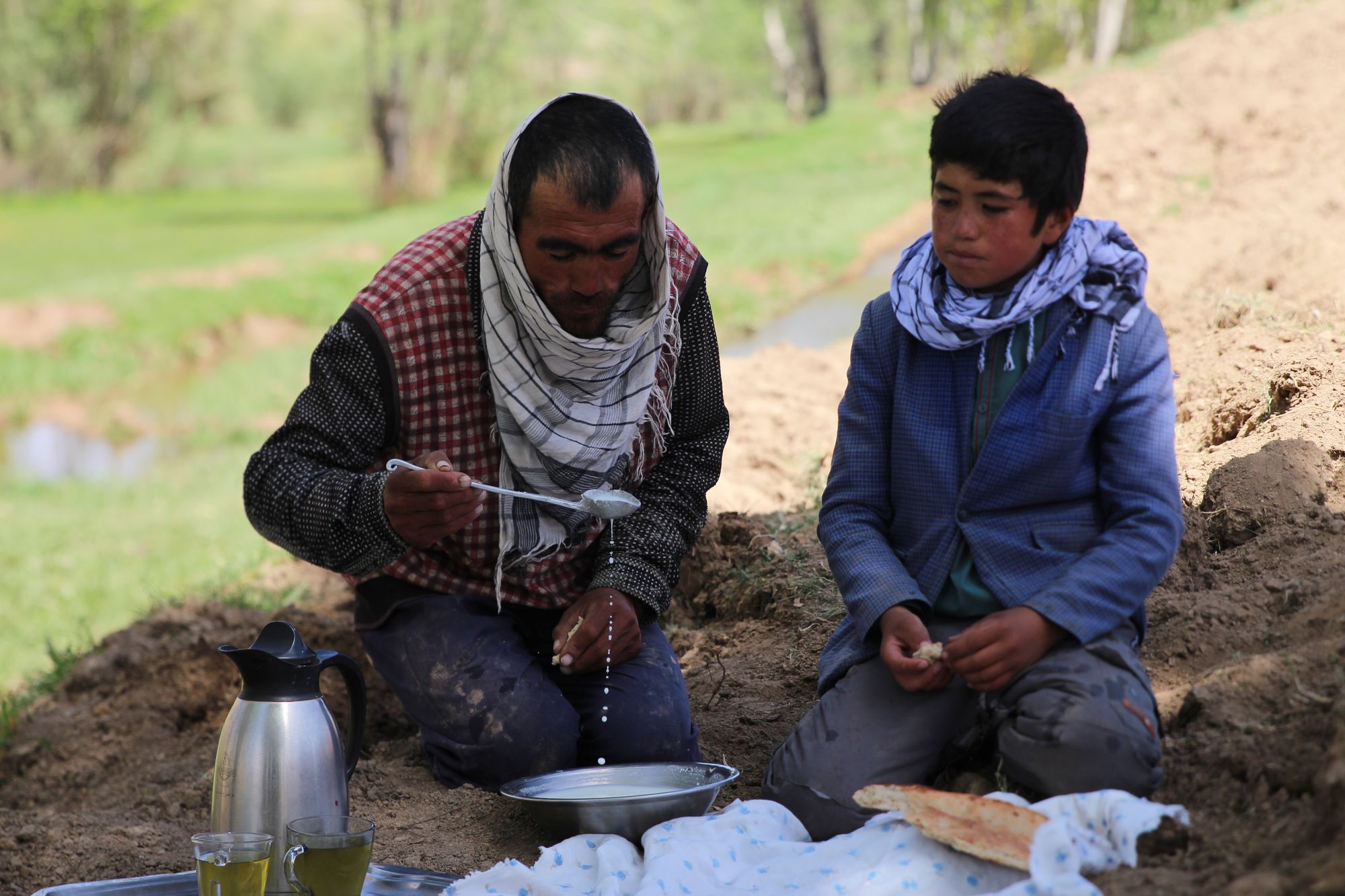
I leave them alone for an hour while they have lunch. When I come back, they're still taking their break. Hamed’s father talks about their work and challenges after lunch, “We use chemical fertilizer once. We will use more fertilizer if it’s cheap this year. We buy a bag of fertilizer for 2,000 to 2,500 Afghanis ($23.66 to $29.57) this year while last year it was 1,200 to 1,500 Afghanis ($14.19 to $17.74).”
A single bag of fertilizer weighs 50 kilograms, according to Hamed. Hamed claims that the Taliban have been collecting a 10 percent tax called an Ushr - an Islamic taxing system implemented by the Taliban following the takeover of Afghanistan by the group in August of 2021.
In addition to the increased taxation, rising grain and vegetable prices during cultivation make it difficult for the family to buy the quantity they need.
Asif dreams of being from a rich household, not worrying about farming or grazing animals. He sometimes imagines, “getting a government position.”
There is a school about an hour’s distance from their home, but Asif must work instead, “No one forces me to study. I want to become a doctor. I hope one day all our problems go away and we become rich so I can go to school, university, and study. I really want to become a doctor and serve the people of Ghor. I want to heal the illnesses of my people with my own hands."
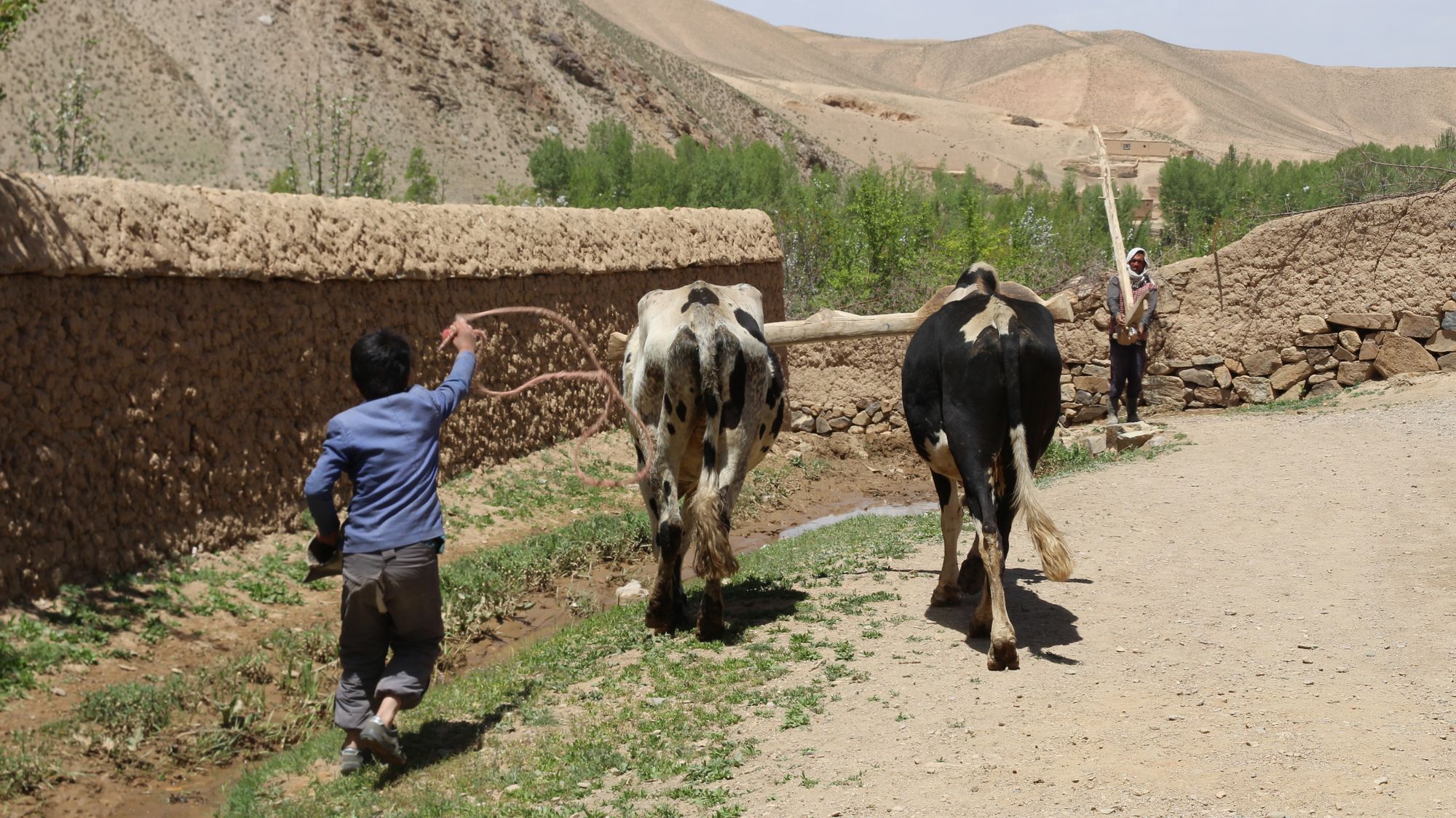
He finds utmost joy in playing with his father, something that fewer fathers in Afghanistan pay attention to and can spare time for.
"The difference between our lives and those of other children my age is that they go to school happily, they have bicycles, and they wear new clothes. Their fathers are wealthy, but we are poor. I can't go to school. When I see other children who have everything and I don't, I feel envious. I wish that someday I could go to school and have a bicycle and a mobile phone. I've become tired of farming and working as a farmer. When I see this kind of work and farming, and the lives of other village kids, I get fed up with life and feel like I'm burning in a living hell," Asif tells Alive in Afghanistan.
Asif and Hamed stop work for the day at 4 in the afternoon. The cattle are tied to graze while Asif talks about his hobbies, “My favorite activities are football and acting. I like Ronaldo because he has exceptional skills and a good style.”
Asif blames his family and the state for his situation.
“My father has to work, but he alone cannot provide for our family. I must work alongside him. When my father takes the cows grazing in the morning, I usually bring him breakfast at 7:30. Sometimes we spend the night in the mountains,” Asif says.
